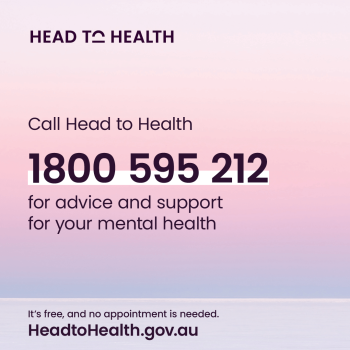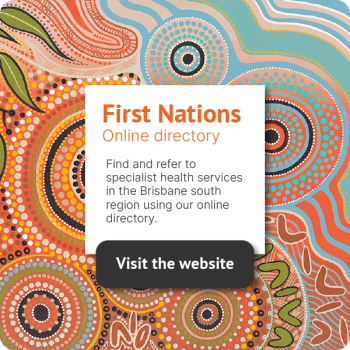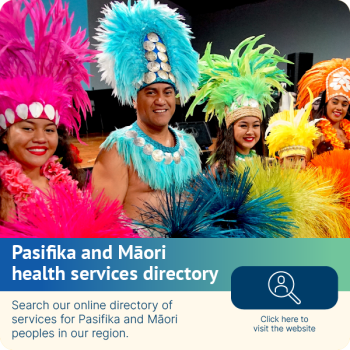Multicultural health
The Brisbane South PHN region is home to over 1.2 million people from many different backgrounds and cultures. In fact, 31% of people in our region were born overseas, with 20% born in a non-English speaking country. The region holds the highest refugee resettlement rates in Queensland and the largest community of Pasifika and Māori people in Australia.
The Brisbane South PHN multicultural health program aims to improve the health outcomes and experiences of people from culturally and linguistically diverse (CALD) backgrounds by working with partners to ensure that health care is accessible, inclusive and culturally responsive. Our objectives include building capacity in primary care, improving health literacy and improving system-wide integration of resources for CALD communities.
For support enquiries, please contact our team at multiculturalhealth@bsphn.org.au
Working with interpreters
Working with a qualified interpreter is essential to ensure all patients can access health care regardless of their English language skills. Engaging an interpreter helps you to communicate effectively with your non-English speaking patients, can protect you from professional risk and is consistent with best practice ethical and professional standards.
Guidelines for engaging an interpreter
Identify the need for an interpreter as early as possible.
If a patient does not speak English (and you do not fluently speak their language):
engage a qualified interpreter
avoid using relatives or friends to interpret – consider only for simple day-to-day communication
do not use an automated translating app – these are not approved for use by health professionals when communicating with patients in a clinical setting.
If the patient requires an interpreter:
identify their preferences and record these on file
consider whether a longer appointment will be needed. Time required to communicate effectively with the patient may be included when claiming time-tiered MBS items. See MBS Online for more information.
TIS National Free Interpreting Service
Private medical practitioners and pharmacies can access the Free Interpreting Service delivered through TIS National to provide Medicare rebatable services to anyone in Australia who is eligible for Medicare.
Practice support staff and nurses working with a private medical practitioner registered with TIS National can also access the service.
TIS National is available 24 hours a day, every day of the year and provides access to interpreters of over 160 languages. This service ensures health professionals can provide quality care, advice and support to their culturally and linguistically diverse patients.
TIS National provides:
immediate phone interpreting
pre-booked phone interpreting
on-site interpreting
video interpreting.
More information about the TIS National Service, eligibility requirements and how to register and book are available on the website.
TIS National immediate phone interpreting
Phone: 131 450
Hours: 7 days, 24 hours
TIS National Medical Practitioner and Pharmacy Priority Line
Phone: 1300 131 450
Hours: 7 days, 24 hours
The Priority Line is only available to private medical practitioners and pharmacies (and their support staff).
Guides to engaging a TIS National interpreter
Video: Hints and tips for working with interpreters
Video: TIS National services for medical practitioners
Video: Working with interpreters in pharmacy settings
Video series: Effective use of interpreters
Allied health
Free Interpreting Service for allied health
Some privately employed allied health professionals have access to the Australian Government’s Free Interpreting Services (FIS). The FIS aims to provide equitable access to key services for people with limited or no English language proficiency.
The service is delivered by the Department of Home Affairs’ Translating and Interpreting Service (TIS National) as a pilot program for selected LGAs based on areas of low English proficiency. The selected LGAs in the Brisbane South PHN region are Brisbane and Logan.
Brisbane South PHN Interpreting for Allied Health Professionals Program
If allied health professionals are not eligible for the Free Interpreting Service, Brisbane South PHN has an Interpreting for Allied Health Professionals Program to ensure private allied health services can access interpreting services at no cost across our whole region.
Refugee health
Refugee Health Connect (RHC)
Refugee Health Connect (RHC) is a partnership between Brisbane South PHN, Brisbane North PHN, Mater and Metro South Health. RHC provides a point of contact for primary health care providers to access information and support regarding refugee health.
We work to:
assist service providers in navigating the refugee health system
build the skills and capabilities of primary health professionals to manage the care of refugee families in a culturally and clinically appropriate manner through:
peer-to-peer education from Brisbane South PHN’s clinical lead – a General Practitioner (GP) with extensive experience in refugee health
in-house practice support and guidance
cross-cultural training
clinical education events
resources for clinical and administrative staff.
Contact Refugee Health Connect
Phone: 07 3864 7580
Email: refugeehealth@bsphn.org.au
Education opportunities
Communicating across cultures in primary healthcare
Videos of an education event delivered in June 2018 designed for clinicians and administration staff working in primary healthcare. It aims to provide the tools to understand and bridge cultural difference in order to have effective interactions with people from different cultural backgrounds and ensure the delivery of high-quality health care.
Introduction to Cultural Competence
A series of online training courses that gives participants the key skills and knowledge to work with people from different cultures. The training gives strategies for reducing misunderstandings caused by culture or language, both with clients and internally. It sets a clear organisational agenda for cross-cultural practices and creates an opportunity for participants to make these practices routine (2 hr 15 min).
Health Literacy Essentials
The majority of Australians have low health literacy; 60% of people you see, have problems understanding and using the information you give. Health Literacy Essentials gives participants the skills to communicate more effectively with consumers, including how to use plain language in written and spoken communication (45 min).
Caring for people from a refugee-like background
A series of videos delivered by experienced GPs introducing refugee health care and practical information to support the care of people of refugee background in Australia.
Refugee Health Network Queensland
Includes upcoming training opportunities and videos of past held training related to refugee health.
Quality improvement
Brisbane South PHN has a quality improvement toolkit that will assist your practice to understand your practice’s cultural profile, ensure ethnicity and country of birth are recorded, and ensure your practice understands how to access interpreters.
Resources
Refugee Health Network Queensland
Refugee Health Network Queensland provides a comprehensive range of information and resources about refugee health, including translated resources.
Australian Refugee Health Practice Guide
The Australian Refugee Health Practice Guide is a resource to support doctors, nurses and other primary care providers to deliver comprehensive, evidence-based on-arrival and ongoing health care for people from refugee backgrounds, including people seeking asylum. The guide contains condition-specific and population-specific advice and referral information that has been compiled by local and regional services.
The guide draws on the Australasian Society for Infectious Diseases and Refugee Health Network of Australia’s ‘Recommendations for Comprehensive Post-Arrival Health Assessment for People from Refugee-Like Backgrounds’ and good practice approaches from practitioners working with people from refugee backgrounds.
Health Translations
Health Translations is a free online library of high-quality translated Australian health and wellbeing information.
Pasifika and Maori Health and Wellbeing Strategy
Pasifika and Māori Health and Wellbeing Strategy website includes culturally appropriate resources and a community services directory.
Brisbane South HealthPathways
Brisbane South HealthPathways is an online information portal for use by health care professionals during consultations with their patients or clients. It provides relevant and current information about local health care services to support decision-making and give advice to their patients or clients, including those from refugee backgrounds. Search in HealthPathways under ‘Refugee and Asylum Seeker Health’.




